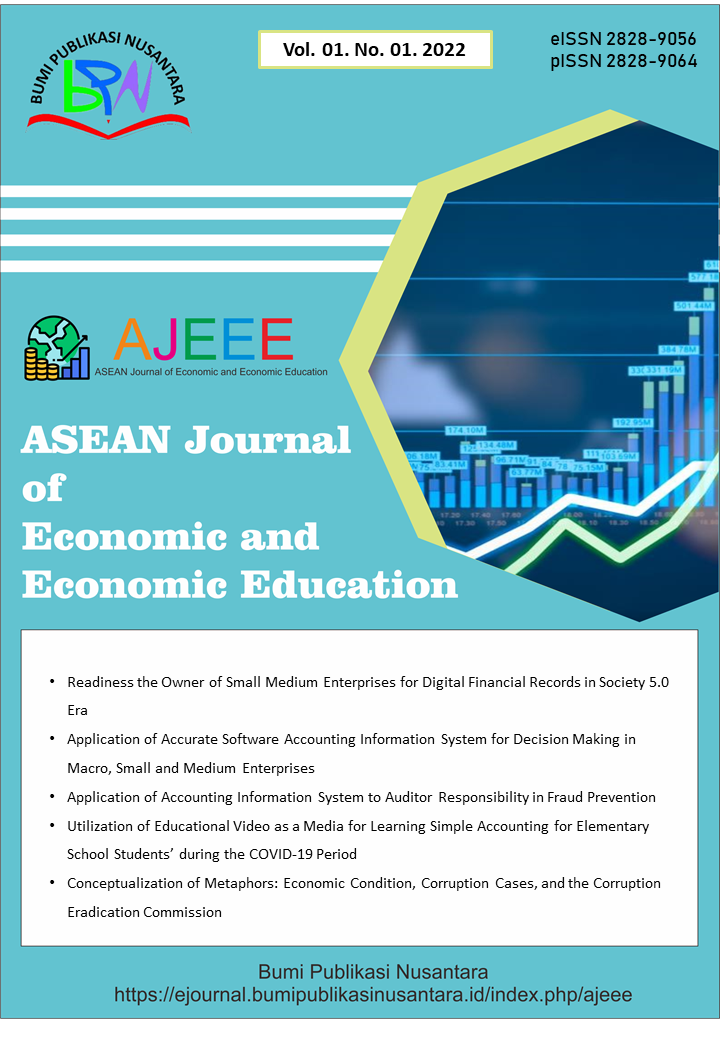Leadership and Organizational Cultural Roles in Promoting Sustainable Performance Appraisal and Job Satisfaction Among Academic Staff
 ), Hassanat Abdullateef Jimoh(2), Habibat Bolanle Abdulkareem(3),
), Hassanat Abdullateef Jimoh(2), Habibat Bolanle Abdulkareem(3),
(1) Al-Hikmah University Ilorin
(2) Al-Hikmah University Ilorin
(3) Al-Hikmah University Ilorin
 Corresponding Author
Corresponding Author
Abstract
Leadership and organizational culture play a crucial role in shaping the performance appraisal system in higher education institutions. Leaders who demonstrate a commitment to sustainability and social responsibility can create a culture that supports sustainable performance appraisal and job satisfaction among academic staff members. Effective leadership and organizational culture can help to create a culture of collaboration, continuous improvement, and learning that supports sustainability and job satisfaction among academic staff. The study highlights the importance of promoting sustainability awareness among academic staff members to enhance the effectiveness of the performance appraisal system. The paper exposes those factors that influence the relationship between leadership and organizational culture among academics, problems and solutions associated with leadership and organizational culture in promoting sustainable performance appraisal and job satisfaction among academic staff. Empirical studies were examined to comprehensively establish the effectiveness of sustainable performance appraisal in higher education institutions which can improve job satisfaction among academic staff members.
Keywords
References
Adeyemo, D. A. and Akinwale, A. A. (2017). Sustainable performance appraisal and job satisfaction of academic staff in Nigerian universities: The moderating effect of organizational culture. Journal of Education and Practice 8(14), 131-140.
Akinboyo, A. O. and Adeyemi, T. O. (2015). Sustainable performance appraisal and job satisfaction among academic staff in Nigerian universities: A study of selected universities in Oyo State. Journal of Education and Practice 6(24), 125-132.
Ali, A., Ali, S. M., and Xue, X. (2022). Motivational approach to team service performance: Role of participative leadership and team-inclusive climate. Journal of Hospitality and Tourism Management, 52, 75-85.
Al-Kahtani, N., Alrawiai, S., Al-Zahrani, B. M., Abumadini, R. A., Aljaffary, A., Hariri, B., Alissa, K., Alakrawi, Z., and Alumran, A. (2022). Digital health transformation in Saudi Arabia: A cross-sectional analysis using healthcare information and management systems society’digital health indicators. Digital Health, 8, 1-9.
Epstein, M. J., Buhovac, A. R., and Yuthas, K. (2010). Implementing sustainability: The role of leadership and organizational culture. Strategic Finance, 91(10), 1-7.
Fareed, M., Noor, W. S., Isa, M. F., and Salleh, S. S. (2016). Developing human capital for sustainable competitive advantage: the roles of organizational culture and high-performance work system. International Journal of Economic Perspectives, 10(4), 1-17.
Gao, J., Greenberg, R., Wong-On-Wing, B. and Wong, A. (2018). The influence of sustainability awareness on organizational culture. Journal of Cleaner Production 172, 3374-3385.
Gelaidan, H. M., Al-Swidi, A., and Mabkhot, H. A. (2018). Employee readiness for change in public higher education institutions: examining the joint effect of leadership behavior and emotional intelligence. International Journal of Public Administration, 41(2), 150-158.
Liu, L. X., Chen, W., Zhang, H. B., Wang, Q. W., Guan, F., and Yu, Z. Z. (2019). Flexible and multifunctional silk textiles with biomimetic leaf‐like MXene/silver nanowire nanostructures for electromagnetic interference shielding, humidity monitoring, and self‐derived hydrophobicity. Advanced Functional Materials, 29(44), 1-10.
Mi, L., Qiao, L., Xu, T., Gan, X., Yang, H., Zhao, J., Qiao, Y., and Hou, J. (2020). Promoting sustainable development: The impact of differences in cultural values on residents' pro‐environmental behaviors. Sustainable Development, 28(6), 1539-1553.
Neider, L. L., and Schriesheim, C. A. (2011). The authentic leadership inventory (ALI): Development and empirical tests. The Leadership Quarterly, 22(6), 1146-1164.
Nordin, N. (2011). The influence of emotional intelligence, leadership behaviour and organizational commitment on organizational readiness for change in higher learning institution. Procedia-Social and Behavioral Sciences, 29, 129-138.
Ogunyemi, K. and Adeniyi, M. A. (2017). Sustainable performance appraisal and job satisfaction of academic staff in Nigerian universities: The moderating effect of sustainability awareness. Journal of Education and Practice, 8(17), 28-35.
Okpozo, A. Z., Gong, T., Ennis, M. C. and Adenuga, B. (2017). Investigating the impact of ethical leadership on aspects of burnout. Leadership and Organization Development Journal, 38(8), 1128-1143.
Pless, N. M., Maak, T. and Stahl, G. K. (2011). Developing responsible global leaders through international service-learning programs: The Ulysses experience. Academy of Management Learning and Education, 11(2), 186-204.
Walumbwa, F. O., Avolio, B. J., Gardner, W. L., Wernsing, T. S., and Peterson, S. J. (2008). Authentic leadership: Development and validation of a theory-based measure. Journal of Management, 34(1), 89-126.
Article Metrics
Abstract View : 1327 times
: 1327 times Download : 825 times
Download : 825 times
Refbacks
- There are currently no refbacks.
Copyright (c) 2023 Bumi Publikasi Nusantara

This work is licensed under a Creative Commons Attribution-ShareAlike 4.0 International License.



_publication_ethics1.png)



